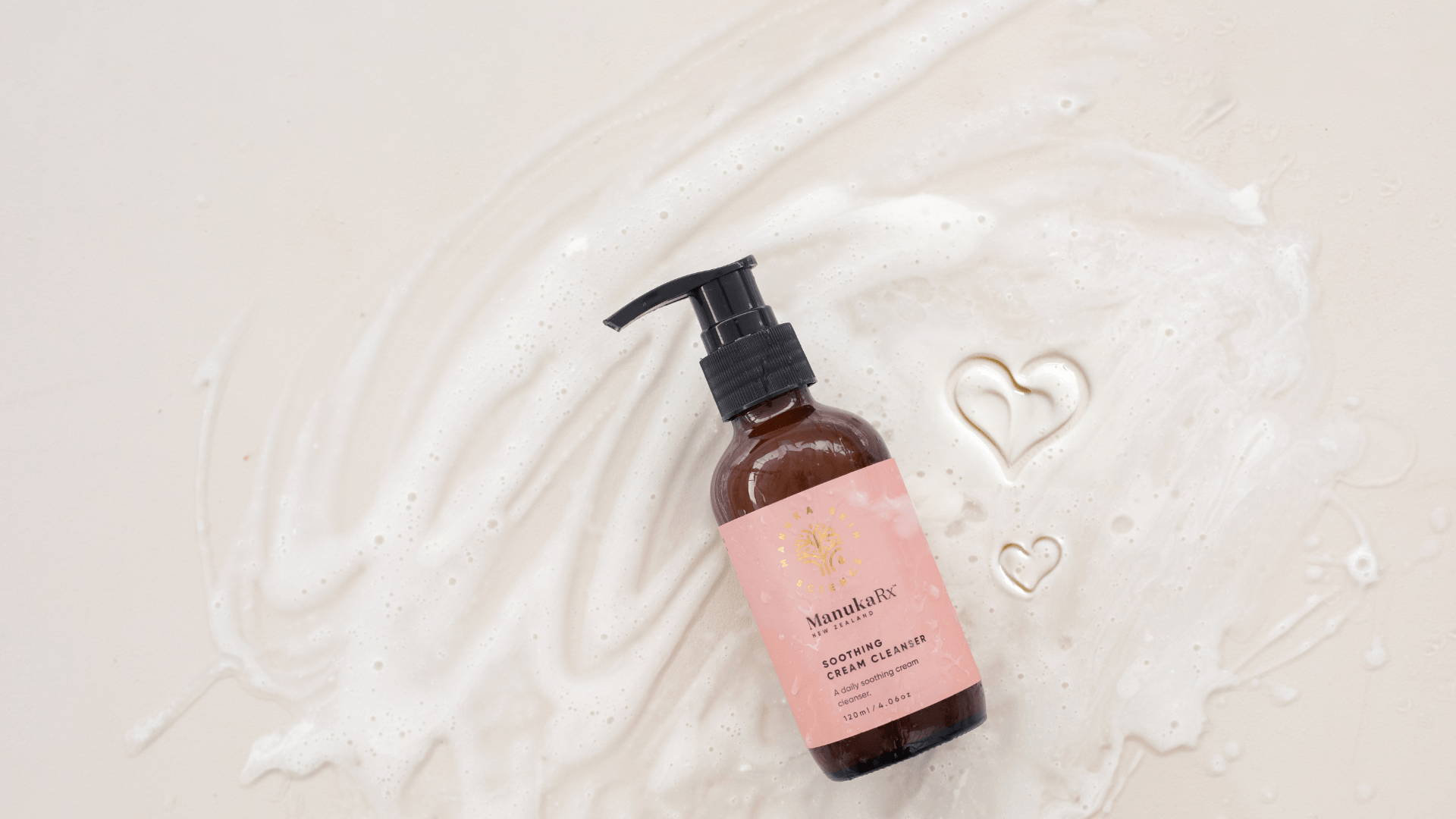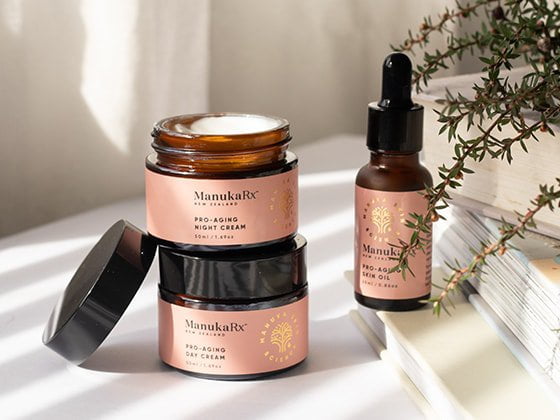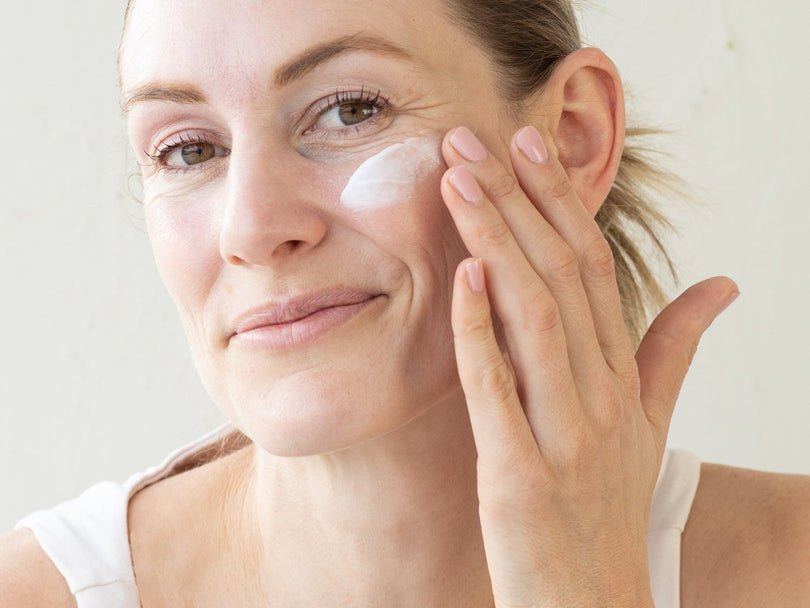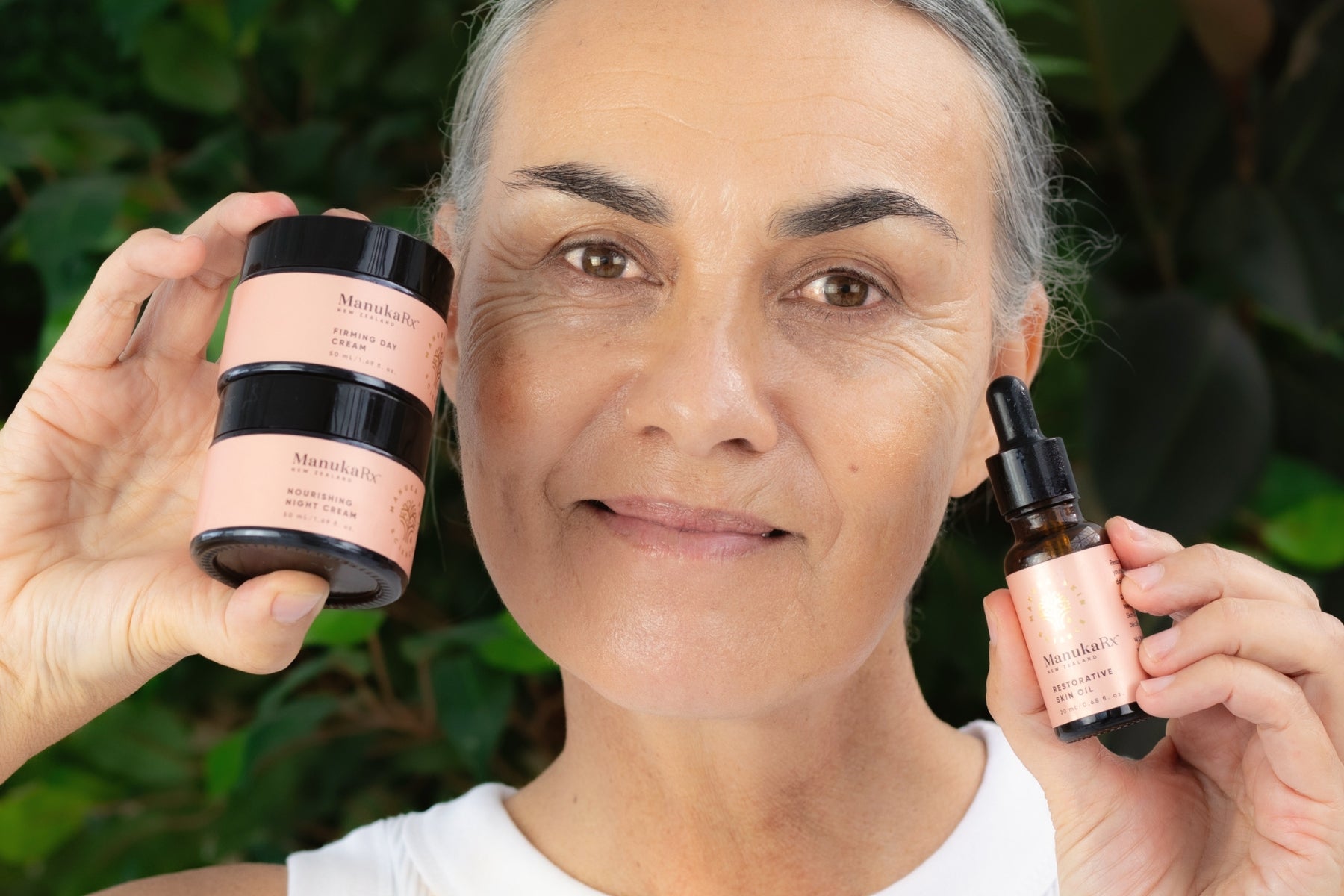Antimicrobial resistance is something not often talked about when it comes to health and skincare, but it is a very urgent health crisis around the world and one that can deeply affect our everyday lives and our health.

One of the keys to fighting AMR (antimicrobial resistance) and keeping ourselves healthy comes down to our own ways of living and how we deal with illness and infections responsibly.
So what does this all have to do with you and your skincare goals?
Quite a lot actually. It might not be one of the most exciting and invigorating topics compared to other exciting skincare trends, but it’s probably the most important skincare topic for all of us to read up on today. Let’s jump in and get you caught up with this crucial health topic.
Put on your thinking caps and grab a coffee, we are going back to science class with this one.
Antimicrobial resistance is something not often talked about when it comes to health and skincare, but it is a very urgent health crisis around the world and one that can deeply affect our everyday lives and our health.
One of the keys to fighting AMR (antimicrobial resistance) and keeping ourselves healthy comes down to our own ways of living and how we deal with illness and infections responsibly.
So what does this all have to do with you and your skincare goals?
Quite a lot actually. It might not be one of the most exciting and invigorating topics compared to other exciting skincare trends, but it’s probably the most important skincare topic for all of us to read up on today. Let’s jump in and get you caught up with this crucial health topic.
Put on your thinking caps and grab a coffee, we are going back to science class with this one.
What is Antimicrobial Resistance?
“A post antibiotic era - in which common infections and minor injuries can kill - far from being an apocalyptic fantasy, is a real possibility.” - World Health Organization
One the basic level, antimicrobial resistance is when microbes that are harmful to us become resistant to our own body’s defences and medicine that is meant to fight it.

Let’s say you get a cut and it gets infected. If you have great skin health, your body might be able to fight the infection and eliminate it fast. If it’s a bad infection that won’t heal, or a much more dangerous infection like staph (staphylococcus aureus), you might need antibiotics to treat this.
But what if these microbes have grown a resistance or created its own defences against the various medicines meant to treat it? That is an antimicrobial resistant superbug, and a monster of a problem that can create havoc for our health with potentially deadly side effects.
What Does Antimicrobial Resistance Have To Do With You?
Everything. Whether you know it or not, your skin plays an incredibly vital role in your health and well-being. This also has an important part as a collective whole for all of us to prevent superbugs that are bodies cannot fight.
But unfortunately the misuse of medicines, antibiotics and use of harsh chemicals on our bodies have created resistant strains of microbes and bad bacteria around the world.
Once upon a time, bad skin infections like staph, or infections inside the body such as pneumonia, might have put you at risk only if you were immunocompromised, critically ill, or ederly. Now that these antimicrobial resistant strains are on the rise, even the healthiest of us are at risk and our ways to fight them are slimming.
What Are Some Antimicrobial Resistance Examples?
There are more bacteria and microbes on planet earth than all animals and plants combined. They have been around long before us, and they will most likely be here long after us. This also makes them very adept at evolving to situations that don’t suite them, or drugs that kill them. Here are some of the most common microbial strains that are a big risk to our health right now.
Staphylococcus Aureus (Staph): A very common bacteria that can cause a wide-range of skin infections from boils and cellulitis, to much more serious and life-threatening issues like surgical wound infections and blood poisoning.
Klebsiella Pneumonia: Causes bloodstream infections, pneumonia, meningitis, and wound infections.
Pseudomonas Aeruginosa: Common cause of urinary tract infections, wound infections and folliculitis.
Escher Coli (E. coli): Commonly causes severe diarrhea and possible complications like kidney failure.
What is the Difference Between Antimicrobial Resistance and Antibiotic Resistance?
Though both antimicrobial resistance and antibiotic resistance are big problems, there are some key differences.
Antibiotic resistance is when bacteria becomes resistant to antibiotics used to fight it.
Antimicrobial resistance, also known as drug resistance, is a far more wide-ranging issue and occurs when microbes of any type grow a resistance to any treatment created by scientists to fight it. These microbes can include bacteria, fungi, viruses, and parasites which are all a risk to our health and make it increasingly difficult to treat.
What Causes Antimicrobial Resistance?
One of the most prominent causes of antimicrobial resistance is the misuse of drugs and medicine.
For example, when you take a course of medication or antibiotics and do not complete the full dosage even though you feel healthy, this can lead to microbes building up a resistance to it in the future.
Another big culprit is inexact diagnosis from doctors or clinics prescribing treatments that actually aren’t the right medication or treatment, or broad antimicrobials being prescribed as “just in case” scenarios.
Other causes of antimicrobial resistance stem from antibiotics used extensively in agriculture and livestock which help bacterias and microbes build a broad resistance, or when given broad antimicrobials during hospital visits.

How Can We Fight Antimicrobial Resistance?
We know, this was a full-on article and hopefully it hasn’t spooked you. Yet, we also hope that it has driven home the importance of fighting AMR together.
So how do we actually combat this seemingly insurmountable health issue?
Given that many of the contributors to this issue is the misuse of medical drugs or wrong prescriptions, we can start there. If you are prescribed antibiotics or drugs make sure to complete the full treatment!
Self-treatment is another big issue with the ease of access to antibiotics and other drugs that are driving superbugs. Don’t take medication that you think will help for a serious issue unless you consult with a medical professional first.
Natural Ways to Fight Bad Bacteria and Microbes
One of the main drivers of antimicrobial resistance, especially bad skin bacterias, can be linked to our skin and overall health. The continued use of harsh chemicals on our bodies can destroy the good bacteria and microbes that protect us, leading to potentially bad infections. There is a good possibility that in these cases a broad antimicrobial could be prescribed, which is actually causing antimicrobial superbugs.
Keeping our overall skin health could be a profoundly important method to fight AMR. Nature is pretty amazing, and there are a plethora of natural ingredients like essential oils that have powerful antibacterial and antimicrobial benefits to fight infections, fungi, and bacteria before going nuclear on your skin.
Kickstart your part in the fight against AMR and shop the world’s most powerful natural antibacterial and antimicrobial essential oil, East Cape Mānuka Skin Oil.






